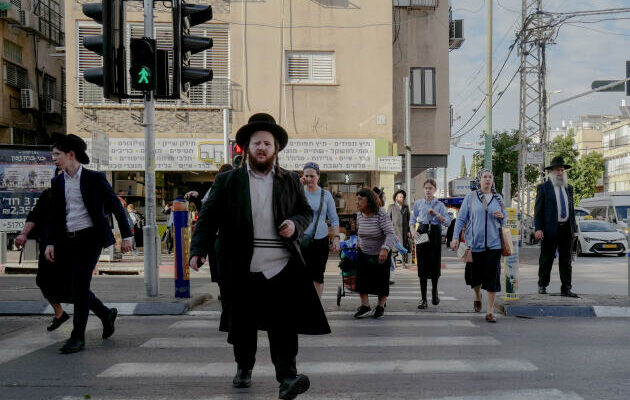In Israel, they are sometimes called the “men in black”. With their black suit, their white shirt, their tzitzit (fringes) on the hips and their wide-brimmed hat, ultra-Orthodox Jews wear an unchanging outfit, whatever the season. But since the attacks carried out by Hamas against their country on October 7, something has changed. In less than a week, and contrary to their usual practice, several hundred haredim (“God-fearers”) considered temporarily exchanging their black and white “uniform” for that of the army.
Is this a revolution? A simple evolution? A passing phenomenon? As is often the case, the rabbis do not agree among themselves, but one thing is certain: the volunteers in question are transgressing the implicit rules of their community. If the movement remains limited to some 3,000 candidates, of whom only 350 are currently under the flag, this mobilization is making waves in a society where the ultra-Orthodox have long lived away from military affairs.
One of them, Natan Rakow, was assigned to the Shivta camp in the Negev desert. Aged 36, this father of three children states straight away that he was not incorporated into a combat unit, but into a section responsible for assisting civilians. For this resident of Beit Shemesh, west of Jerusalem, the idea of “be part of a community of citizens” prevailed over religious prejudices, in a difficult moment for the country. When he joined the base, he knew that he would not eat kosher as strictly as usual and, even, that he risked meeting women. Or even, something prohibited by his religious practice, that he could hear them sing (the national anthem, for example). But none of that was enough to dull his desire “to help”. He also went so far as to return home in uniform, a very rare thing in an environment where the army is not in the odor of holiness. In the past, haredim have been molested when they dared to appear in soldier’s uniform in predominantly Orthodox neighborhoods.
An invisible gap crossed
Like others, Natan Rakow volunteered at the very beginning of the conflict. The army, which was then recalling its approximately 350,000 reservists, decided to quickly train these men who had not done their military service. “In a few hours, there were already more than 450,” says Ram Moshe Ravad, a rabbi in the air force, who says he personally selected 1,560. Not all of them will be incorporated, but all of them crossed an invisible divide by voluntarily approaching the army.
You have 75% of this article left to read. The rest is reserved for subscribers.
